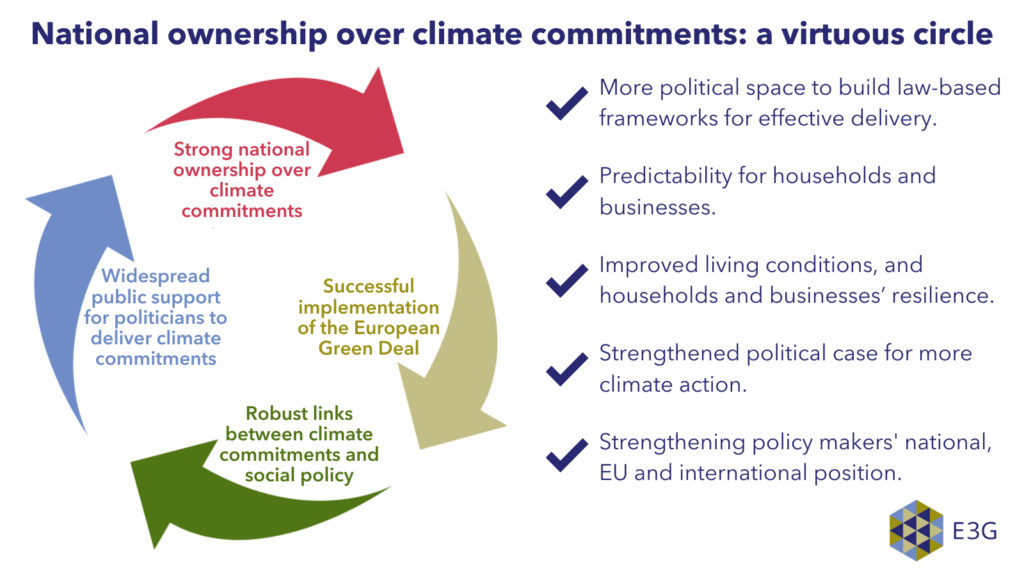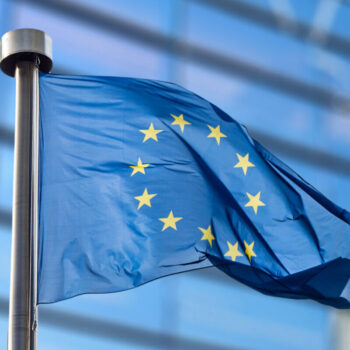Member states have made strong climate commitments at the EU-level. When carrying them out at home, national governments can unlock a strong public mandate for the climate transition. They can do so by integrating climate action and social fairness under a governance framework adapted to their national circumstances. This briefing develops the case for governments to take strong ownership over climate commitments and proposes a governance approach to muster the political means to do so.
EU member states can identify linkages, challenges and opportunities across climate and social policy. With their national competences on social affairs, they can consequently act on this, tackling social concerns and impacts related to both climate change and the commitment to fight it, which will be crucial to prevent backlash.
The current implementation stage of the European Green Deal is the chance for all 27 member states to take strong “ownership”, by translating the EU climate commitments to the national context and strengthening their local social dimension. National ownership is therefore critical to unlock the public support for ambitious delivery.

To reinforce this positive dynamic, EU member states need to put in place a framework for good climate governance:
- Enshrine a national climate neutrality target (of 2050 at the latest) in law, where not already in place.
- Build (or adjust) a comprehensive long- and medium-term strategy, based on tracing back the steps and milestones needed to deliver the climate neutrality target. All additional short-term measures should be tested for consistency and alignment with the long- and medium-term strategy.
- Couple the tracing back process with in-depth analysis of the social cohesion impact of each step, such as the potential to perpetuate existing inequalities or trigger new disparities. Tackle the undesirable effects of the different steps by adapting the policy design.
EU member states can improve the quality and acceptability of such governance frameworks through innovations found in transition, inclusive and humble governance practices, which facilitate the joining up of climate and social agendas.
By taking ownership over climate commitments through good governance, thereby joining social and climate action from the get-go, national governments can:
- Deliver European climate neutrality objectives and contribute to reducing climate impacts..
- Become a frontrunner, strengthening their economic and political position at EU and international level.
- Directly and visibly improve living conditions and strengthen households’ and businesses’ resilience.
- Increase public support and governments’ political capital for climate action
Read the full briefing paper on why and how the member states must enact the EU climate commitments.


